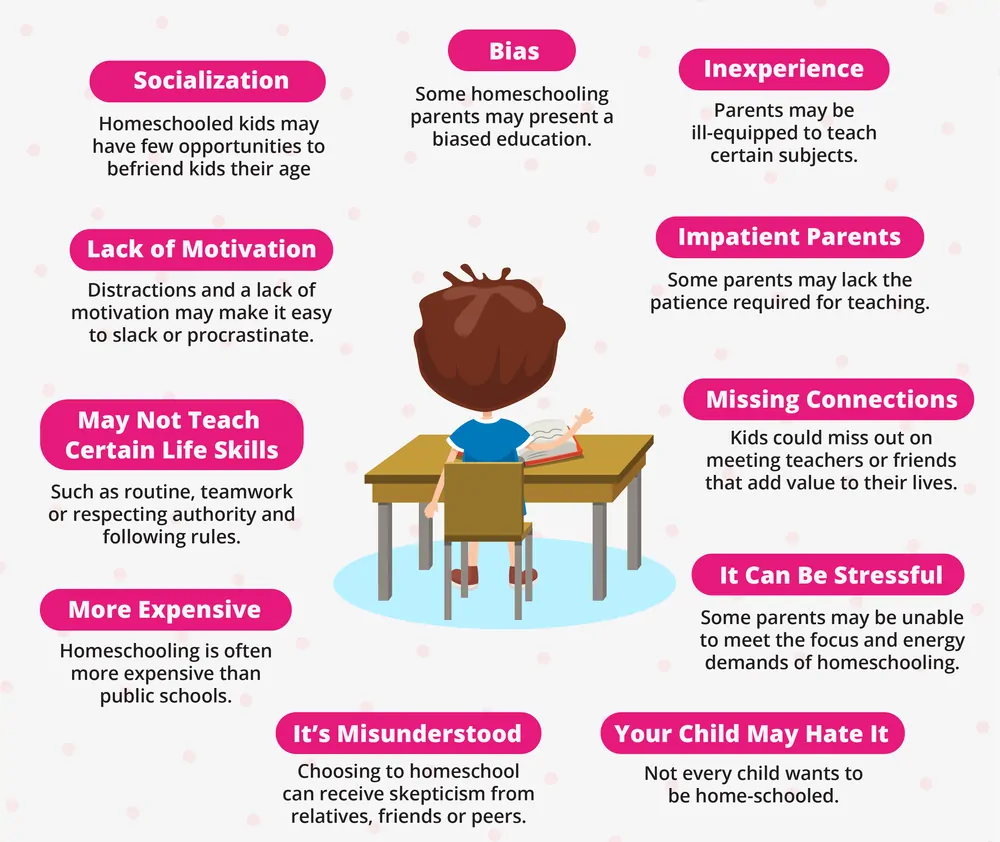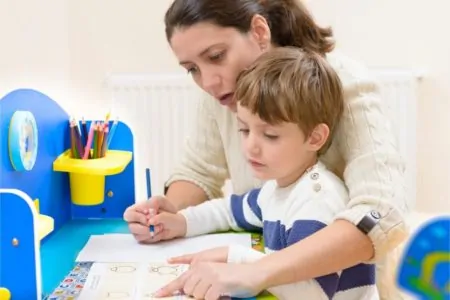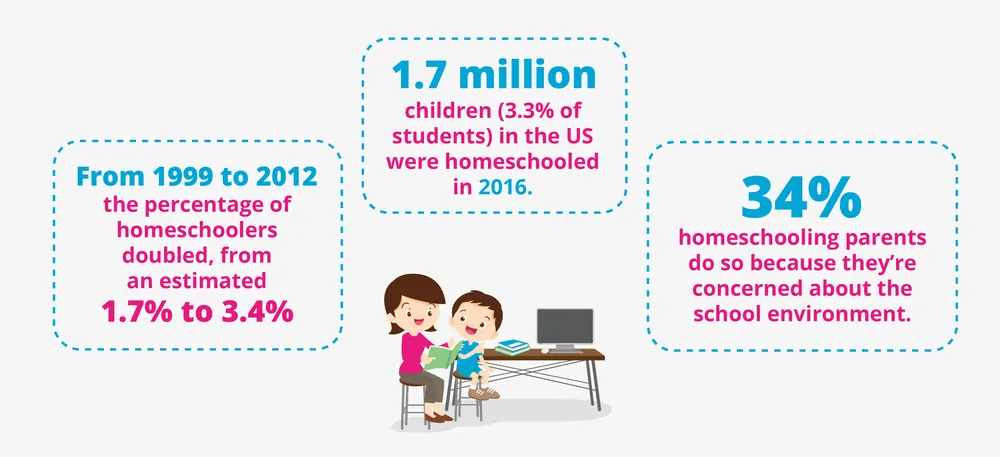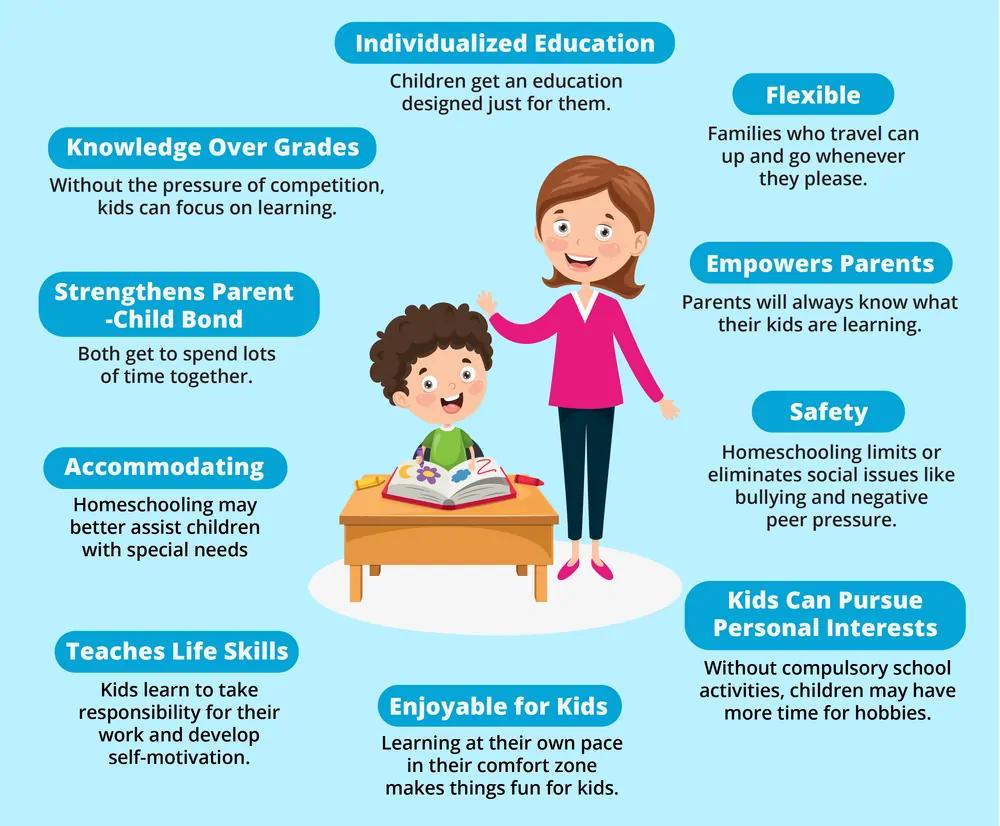Thinking about homeschooling your kids? You aren’t alone. As parents, we constantly wonder if we are making the best choices for our children, especially when it comes to their education.
The debate between public and home education has been around for years. The truth is, there is no one-size-fits-all solution. Homeschooling might be a dream for some families and a disaster for others.
It is a viable, growing option, though. Let’s shed some light on what it really involves so you can decide if it is the right path for your family.
The Rise of Homeschooling

More children are homeschooled today than ever before. While reports from 2016 showed about 1.7 million homeschooled students, that number has surged significantly in recent years, especially following the global pandemic (1).
While homeschooling is widely accessible in the United States, it is actually illegal in countries you might not expect, such as Germany and Sweden. They make very few exceptions, and it is certainly not the norm there.
Despite international restrictions, it is a growing trend globally (2). Parents are leaning toward home education to create an environment where their children can truly thrive.
Homeschooling removes many social issues found in public schools. Bullying is virtually eradicated, and safety concerns, like school violence, are no longer a daily worry for parents.
But is it effective?
Homeschooling allows children to learn at a comfortable pace without the rigid pressure of a classroom. Research often shows that homeschooled children are just as likely, if not more likely, to be accepted into universities (3).
They also tend to perform well on standardized tests, including the SATs. This doesn’t discredit public schools, which have their own merits, but it does show that homeschooling is a serious academic contender.
After the pandemic year of 2020, people have a whole new respect for homeschool families. For most of us, homeschooling or distance learning was thrust upon us, and we learned firsthand how hard and rewarding homeschooling can be.
Editor's Note:
Katelyn Holt RN, BSN, BCHomeschooling 101

There is a common misconception that homeschooling is unstructured chaos where kids just fend for themselves. While there is plenty of freedom, successful homeschooling is much more than just staying home.

How Does Homeschooling Work?
Unlike public school, homeschooling gives you control over the “who, what, when, and where” of your child’s education. As long as you follow your state’s laws, the method is up to you. Your state regulations will determine if you need to register as a private school or report your attendance (4).
Here are the most common homeschooling styles available to you (5):
- School at home: This is what most people imagine. You set up a classroom area, buy a full boxed curriculum, and follow a schedule similar to a traditional school day.
- Online public school: This technically isn’t homeschooling in the legal sense. Children enroll in a state-run public school but take classes online from home. It is free and follows state standards, but lacks the flexibility of true homeschooling.
- Unit studies: This method integrates multiple subjects around a single topic. For example, if you study “The Ocean,” you cover science (marine biology), history (exploration), and math (depth and pressure) simultaneously.
- Classical: A rigorous, language-focused method based on the “Trivium.” It focuses on three stages of learning: grammar, logic, and rhetoric. It relies heavily on literature and history.
- Montessori: While often a classroom method, this works well at home for younger kids. It emphasizes child-led, hands-on learning with specific materials rather than direct instruction.
- Charlotte Mason: A holistic, Christian-based approach. Lessons are kept short (15 to 20 minutes) and focus on “living books” rather than dry textbooks, along with plenty of nature study.
- Relaxed (Eclectic): This is a mix-and-match approach. You might use a rigid math curriculum but use nature documentaries for science. It allows you to tailor resources to your child’s specific needs.
- Unschooling: This is the most unconventional method. It operates on the belief that children are natural learners. There is no set curriculum; instead, children pursue their own interests, and parents facilitate that learning rather than directing it.
Colleges generally do not discriminate against homeschooled students. In fact, many admissions officers appreciate the unique experiences and self-motivation homeschooled applicants bring to the table.
The Benefits of Homeschooling

Homeschooling requires effort, but the rewards can be life-changing. From academic freedom to family bonding, here is why so many parents are making the switch.
1. A Tailored Education
Your child gets an education designed specifically for them. If they excel in math but struggle in reading, you can adjust the grade levels accordingly. They never have to wait for the rest of the class to catch up, nor will they be left behind.
You also control the worldview. If you want a faith-based education or a specific philosophical approach, you have the freedom to choose curriculum that aligns with your family values.
2. Reignited Love for Learning
Many kids lose their natural curiosity in a rigid classroom setting. Homeschooling allows education to be interest-led.
If your child loves dinosaurs, you can build an entire month’s curriculum around paleontology. When kids learn about things they actually care about, the battle over schoolwork often disappears.
3. Safety and Environment
Bullying, peer pressure, and school violence are major concerns for modern parents. Homeschooling removes your child from toxic social environments.
It also protects their health. You avoid the constant rotation of school-bred illnesses, and your child can get more sleep since they aren’t waking up at dawn to catch a bus.
4. Stronger Family Bonds
You spend all day with your kids. While that can be tiring, it also builds an incredibly deep relationship. You are there for the “aha!” moments when they finally understand a concept. Siblings also tend to be closer because they are each other’s primary playmates and classmates.
5. Ultimate Flexibility
Homeschooling can happen anywhere. If you want to travel during the off-season, you can. If your child is a competitive athlete or musician, you can build their school schedule around their training.
I have a friend whose son was a high-level tennis player. Public school hours made training impossible, so they switched to homeschooling. He got his education and pursued his pro career simultaneously.
6. Accommodating Special Needs
Public schools often struggle to provide adequate resources for children with ADHD, autism, or learning disabilities.
At home, you can create the perfect sensory environment. You can take breaks whenever needed, use fidgets freely, and use specialized curriculum that a busy classroom teacher simply can’t implement.
7. Real-World Life Skills
Homeschoolers often have more time for practical skills. They learn time management, cooking, budgeting, and home maintenance because they are living life alongside you all day.
Rather than just memorizing facts for a test, they learn how to find information and apply it. This fosters independence and initiative that serves them well in adulthood.
Potential Challenges of Homeschooling

It isn’t all nature walks and happy reading time. Homeschooling is hard work. Before you jump in, consider these potential hurdles.

- Socialization effort: You have to work harder to ensure your kids have friends. Unlike public school where they are surrounded by peers, you must actively seek out park days, co-ops, and sports teams. If you live in a rural area, this can be isolating.
- The “Teacher” burden: You are responsible for everything. If your child doesn’t learn to read, that weight falls on you. You also have to teach subjects you might not be good at, like chemistry or advanced math.
- Relationship strain: You are now parent, teacher, and principal. It can be hard to separate “school time” from “family time.” If you had a bad day doing math, it can bleed into dinner time.
- Reduced income: Usually, one parent has to stay home to teach, which means living on a single income. You also have to pay for all the curriculum and supplies out of pocket.
- Burnout: It is a 24/7 job. You are with your children constantly. Without breaks or support, it is easy for parents to become exhausted and overwhelmed.
- Missing out on “traditional” experiences: Your child might miss prom, school football games, or the simple experience of riding the bus. While many homeschool groups organize their own proms, it is a different experience.
- Criticism from others: Prepare for skepticism. Family members and friends may quiz your children or question your decision, which can be frustrating to deal with constantly.
Tips for Homeschooling Kids

There is no perfect formula for homeschooling, and you will likely change your approach several times. Here are some tips to help you start on the right foot.
Additional Resources for Homeschooling

Ready to dig deeper? Here are some trusted resources to help guide you on your journey.
Preparation
- Homeschool Facts Interactive Map of State Laws
- Homeschool Legal Defence Association Planning Checklist
Books
- The Unhurried Homeschooler: A Simple, Mercifully Short Book on Homeschooling
- A Survivor’s Guide to Homeschooling
- Homeschooling Methods: Seasoned Advice on Learning Styles
- 102 Top Picks for Homeschool Curriculum
Media
- Homeschool Unrefined (podcast)
- TedEducation (YouTube channel)
- Homeschool.com (website)
Support
FAQs
School’s Out

Homeschooling is a major lifestyle change, so don’t feel like you have to decide overnight. Take your time, do your research, and talk to your partner.
While it isn’t the right choice for everyone, it can be an incredible journey for the right family.
I hope this guide has cleared up the confusion and given you the confidence to make the best choice for your kids. Whether you choose the kitchen table or the classroom, you have got this!

































